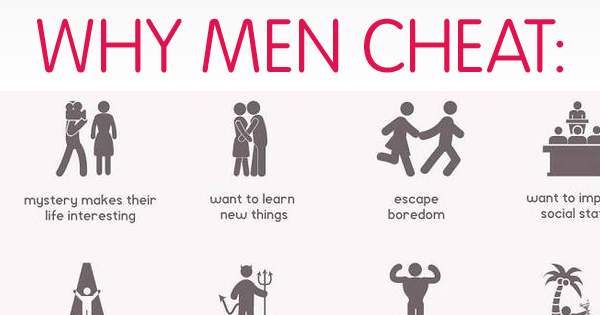Introduction: The Messy Reality of Moving On
Starting a new relationship should feel like a fresh chapter. The late-night texts, butterflies before dates, and the joy of rediscovering love are supposed to be exciting. But what if your heart hasn’t fully left the last chapter?
Dating someone new while missing your ex is one of the most emotionally confusing experiences you can face. You’re caught between nostalgia and possibility. Part of you wants to embrace what’s in front of you, while another part secretly replays old memories on a loop.
This article explores:
- Why missing your ex while dating is normal
- How to spot when nostalgia is harmless vs. harmful
- Practical ways to balance the past with the present
- The fine line between rebound and readiness
- When to talk to your new partner—and when not to
By the end, you’ll have tools to date responsibly, honor your feelings, and avoid sabotaging a new relationship.
Why You Miss Your Ex Even in a New Relationship
It can feel strange—even unfair—that you’re thinking of your ex while with someone new. But psychologists agree this is a normal part of healing.
1. Habits Are Hard to Break
Your ex was part of your daily rhythm: texting in the morning, calling after work, weekend plans. When those patterns disappear, the absence feels loud. Your new partner hasn’t filled that space yet, which explains why the longing lingers.
2. Emotional Residue Takes Time
Feelings don’t switch off like a light. Emotional bonds—especially deep ones—fade gradually. You can be attracted to your new partner yet still carry residue from the old.
3. The Brain Loves Familiarity
Neurologically, your brain associates your ex with comfort and safety, even if the relationship wasn’t healthy. The brain resists change, which is why you may crave the familiar more than the unknown.
4. The Comparison Trap
Your mind often compares without permission: “My ex used to make me laugh more” or “At least my ex understood this hobby.” Nostalgia has a way of romanticizing the past while downplaying the flaws.
According to PsychCentral, this pull toward the past is natural. But unchecked, it can block you from fully embracing the new.
The Emotional Tug-of-War: Guilt vs. Hope
Dating someone new while missing your ex is like having two competing emotions living rent-free in your heart.
The Guilt Side
- You feel bad that your partner isn’t getting 100% of you.
- You wonder if you’re deceiving them by not being “fully over it.”
- You’re scared they’ll notice the shadow of your ex and pull away.
The Hope Side
- You feel a spark that reminds you love is still possible.
- You want to believe this new story could heal the old wounds.
- You sense that starting fresh might be exactly what you need.
The battle between guilt and hope doesn’t mean you’re broken. It means you’re human, wrestling with the natural overlap between endings and beginnings.
Comparing Past and Present: A Perspective Shift
A structured look can help you reframe nostalgia. Here’s a simple table:
| Your Ex | Your New Partner | Reality Check |
|---|---|---|
| Familiar comfort, shared memories | Exciting novelty, new possibilities | Comfort feels safe, but it kept you in the past |
| Known flaws (arguments, incompatibility) | Untested but open to growth | New people bring opportunities to heal and grow |
| Nostalgic “what if” questions | Real chance to create something new | “What ifs” aren’t facts—they’re illusions |
This table shows that the “safe zone” of the past often disguises itself as love. Meanwhile, the “unknown” of the present holds the real potential for growth.
Warning Signs You’re Not Ready Yet
Sometimes it’s fine to miss your ex while exploring something new. But there are red flags that suggest you’re not emotionally ready for a serious relationship.
Emotional Red Flags
- You bring up your ex in casual conversations.
- You compare your partner’s quirks to your ex’s “better” qualities.
- You check your ex’s social media daily.
- You secretly hope your ex will come back.
Behavioral Red Flags
- You emotionally withdraw during dates.
- You struggle to open up because you’re “protecting” yourself.
- You use your new partner mainly as a distraction.
According to VerywellMind, if these patterns dominate your new relationship, you may be unfairly dragging someone into your unfinished healing.
How to Balance Moving Forward While Looking Back
Moving forward doesn’t mean pretending the past didn’t happen. It means integrating lessons from the past without letting them control the present.
Practical Strategies for Balance
- Set boundaries with memories – Avoid dwelling or re-reading old texts.
- Channel nostalgia constructively – Journal about what you miss and why.
- Build new rituals – Replace old habits with fresh ones (e.g., new date night traditions).
- Practice mindfulness – Stay present with your partner instead of mentally wandering.
- Create gratitude lists – Remind yourself what your new partner offers.
When (and How) to Have “The Talk”
Should you tell your new partner you still miss your ex? The answer isn’t one-size-fits-all.
When to Keep It Private
- If it’s just mild nostalgia.
- If you’re actively working through it yourself.
When to Share Honestly
- If it impacts your availability or energy.
- If your partner senses something is “off.”
- If you need slower pacing to feel comfortable.
When you share, do so gently. Instead of saying:
- “I still love my ex.”
Say something like:
- “I’ve been through a tough breakup, and while I’m excited about us, I’m also giving myself time to adjust.”
This builds trust without overwhelming your partner.
The Rebound Question: Is This Relationship Real or a Distraction?
Rebounds get a bad reputation, but not all are doomed. Some evolve into meaningful, lasting connections if both people are transparent.
Signs It’s Just a Rebound
- You jumped into dating within weeks of your breakup.
- You crave constant attention as a distraction from loneliness.
- You’re more excited about “proving you’ve moved on” than about the person.
Signs It Could Be Real
- You genuinely enjoy your partner’s company beyond distraction.
- You’re willing to be emotionally open, even if scared.
- You don’t constantly compare them to your ex.
A rebound only becomes harmful if it’s used as an escape, rather than as a chance to rebuild.
Coping Tools: Healing While Dating
You don’t need to choose between healing and dating—you can do both, if intentional.
Tools That Help
- Therapy or counseling – A neutral space to process lingering grief.
- Support system – Lean on friends instead of unloading everything on your new partner.
- Time alone – Balance dating with solo reflection to avoid emotional dependency.
- Slow pacing – Take things step by step rather than rushing milestones.
Common Myths About Dating While Missing Your Ex
- “If I miss my ex, I shouldn’t date at all.”
→ Not true. Healing isn’t linear—you can grieve and grow at the same time. - “It’s unfair to my partner.”
→ Only if you hide it or act deceitfully. Transparency and pacing make it manageable. - “It means I’m not over them.”
→ Missing someone doesn’t equal wanting them back. It often means your brain is adjusting. - “A rebound can never work.”
→ Wrong. Some rebounds evolve into deep, lasting partnerships.
Common Mistakes People Make When Dating Someone New While Still Missing Their Ex
Dating while still carrying feelings for your ex is tricky. Many people make avoidable mistakes that not only sabotage their new relationships but also prolong their healing. Let’s break down the most common missteps, why they happen, and what to do differently.

1. Comparing Your New Partner to Your Ex
One of the biggest mistakes is holding your new partner against the yardstick of your ex.
- “My ex always texted me goodnight, why don’t they?”
- “My ex understood my favorite music better.”
- “This restaurant reminds me of when my ex took me here.”
These thoughts creep in because nostalgia distorts memory. Your brain exaggerates your ex’s good qualities while conveniently forgetting the bad.
Why It Hurts:
Comparisons rob your new partner of a fair chance. They feel like they’re in a competition they never signed up for. It also prevents you from appreciating who they truly are.
Better Approach:
Catch yourself when you start comparing. Replace the thought with curiosity: “What unique thing does this partner bring into my life?”
2. Talking About Your Ex Too Much
It’s normal to mention your ex occasionally, especially in stories from your past. But constantly bringing them up is a red flag.
- Sharing old breakup stories on dates.
- Dropping your ex’s name casually in conversation.
- Comparing experiences out loud: “My ex and I used to love this park.”
Why It Hurts:
It signals to your partner that you’re not fully present. They may feel overshadowed or undervalued, even if that’s not your intention.
Better Approach:
Limit ex-talk, especially in the early stages. If your partner asks, be honest but brief. Focus on creating new stories together instead of reliving old ones.
3. Rushing the Relationship as a Distraction
Some people jump headfirst into a new romance to avoid the pain of heartbreak. They move too fast—introducing their partner to family, posting on social media, or even talking about commitment prematurely.
Why It Hurts:
The rush isn’t about genuine connection—it’s about escaping loneliness. This creates pressure on both sides and often leads to disappointment when reality doesn’t match the fantasy.
Better Approach:
Slow down. Enjoy getting to know each other without the urgency of replacing what you lost. Real love grows in time, not in haste.
4. Using Your New Partner to “Prove a Point”
Another mistake is dating someone new to prove to your ex—or to yourself—that you’ve moved on.
- Posting pictures online to trigger jealousy.
- Talking loudly about your new relationship in mutual circles.
- Treating your partner as a trophy rather than a person.
Why It Hurts:
Your partner becomes a pawn in your emotional chess game. This damages trust and creates a foundation built on insecurity instead of sincerity.
Better Approach:
Ask yourself: “Am I with this person because I value them, or because I want to send a message?” If it’s the latter, pause before moving deeper.
5. Expecting the New Relationship to “Heal” You
Many people assume a new partner will fix the pain of the old one. They believe new love is the ultimate bandage for heartbreak.
Why It Hurts:
This expectation is unfair and unrealistic. Your partner is not responsible for healing wounds they didn’t cause. Over time, they’ll feel drained by the pressure.
Better Approach:
Do your healing work outside the relationship—through journaling, therapy, or self-reflection. See your partner as a companion, not a cure.
6. Ignoring Red Flags Because of Loneliness
When you’re desperate to escape the void left by your ex, you may overlook obvious red flags.
- Accepting poor communication.
- Ignoring incompatibility in values.
- Settling for someone just to avoid being alone.
Why It Hurts:
You risk investing in another painful relationship that repeats old patterns.
Better Approach:
Pause and assess: “Do I truly like this person, or do I just hate being single?” Learn to distinguish between genuine attraction and fear of loneliness.
7. Hiding Your Feelings Altogether
Some people swing to the opposite extreme—they bury every thought about their ex, pretending they’re totally fine.
Why It Hurts:
Suppressed emotions don’t disappear; they resurface later, often in destructive ways. Your partner may sense something’s off and feel disconnected.
Better Approach:
Be honest—with yourself first, and with your partner when necessary. Acknowledging your feelings is healthier than denying them.
8. Over-Correcting With Excessive Affection
Sometimes guilt makes you “overcompensate.” You shower your partner with affection not because you’re feeling it, but because you’re trying to mask the fact you’re not fully present.
Why It Hurts:
Your partner may enjoy the attention but eventually sense it lacks depth. Forced affection isn’t sustainable.
Better Approach:
Give affection naturally. If you feel you’re forcing it, take a step back and check in with your emotions.
9. Neglecting Time Alone
Another mistake is filling every waking moment with your new partner to avoid loneliness.
Why It Hurts:
You become dependent on the relationship for distraction, rather than building your own emotional resilience. This imbalance creates pressure and burns the relationship out faster.
Better Approach:
Balance time together with intentional time alone. Healing requires solitude as much as companionship.
10. Failing to Communicate Boundaries
A new partner can’t read your mind. If you’re not ready for certain things—like anniversaries, shared spaces, or deep emotional confessions—you need to communicate.
Why It Hurts:
Silence creates confusion. Your partner may misinterpret hesitation as rejection or disinterest.
Better Approach:
Be upfront. Say something like: “I’d like to take this slowly, not because I don’t care, but because I want to do it right.”
Quick Recap Table: Mistakes vs. Better Choices
| Mistake | Why It Hurts | Better Choice |
|---|---|---|
| Comparing to your ex | Blocks appreciation for new partner | Focus on their unique qualities |
| Talking about ex too much | Makes partner feel undervalued | Limit ex-talk; create new stories |
| Rushing relationship | Creates pressure, false intimacy | Slow down, enjoy gradual connection |
| Using partner to prove a point | Reduces them to a pawn | Value them for who they are |
| Expecting partner to heal you | Unfair responsibility | Do personal healing alongside dating |
| Ignoring red flags | Leads to repeated heartbreak | Evaluate carefully before committing |
| Hiding feelings | Creates emotional distance | Be honest with yourself and partner |
| Over-correcting with affection | Feels forced and unsustainable | Offer genuine, natural affection |
| Neglecting time alone | Builds dependency | Balance solitude with shared time |
| Failing to communicate boundaries | Creates confusion, misinterpretation | Express needs clearly and kindly |
Practical Checklist: Are You Ready?
Ask yourself these questions before diving deeper with someone new:
- Can I talk about my ex without getting emotionally overwhelmed?
- Do I see my new partner for who they are—not just as a replacement?
- Am I capable of emotional availability?
- Do I want this person, or just the comfort of not being alone?
If most answers lean positive, you’re likely ready to move forward.
Conclusion: Presence Over Ghosts
Dating someone new while missing your ex is messy, but it’s also deeply human. The key is not to deny your emotions, but to manage them with honesty and compassion.
You can’t erase your past, but you can choose not to let it dictate your future. Show up with presence, give your partner the best chance at seeing the real you, and allow yourself to grow from both love lost and love found.
Because in the end, moving on isn’t about forgetting someone—it’s about remembering who you are, and choosing to love again from that place of strength.




